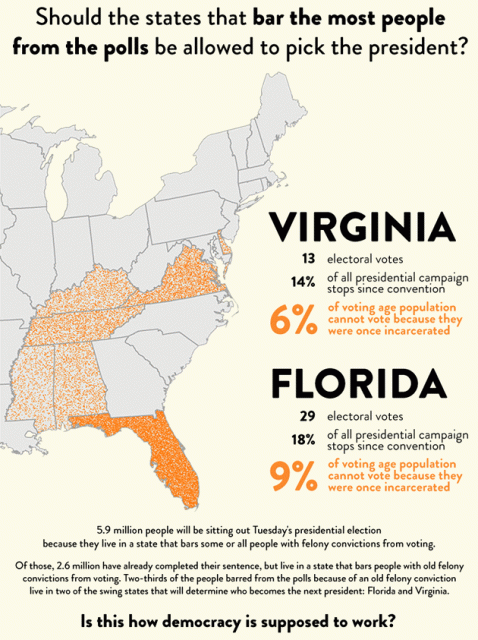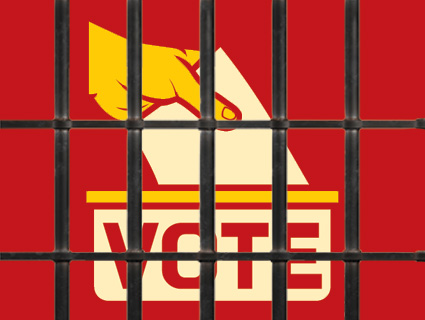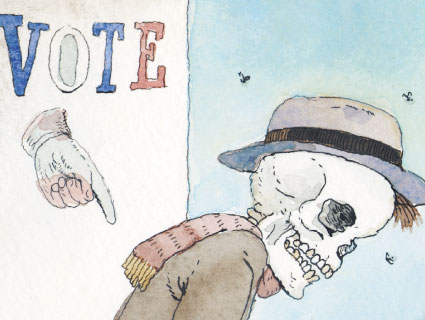A new infographic from the Prison Policy Initiative (cropped version below) does a nice job of illustrating the massive vote-suppression tactic we wrote about previously—one that could hand two crucial states to Mitt Romney. While most states forbid people to vote while in prison, and many extend that ban to people on parole, only a handful make it next to impossible to regain your right to vote if you’ve ever been convicted of a felony. Do the crime, and you’ll never vote again.
Among that handful of states are two where Obama and Romney have been running neck and neck—Florida and Virginia. (Nate Silver’s model shows Romney leading in Florida and Obama ahead in Virginia.) According to PPI’s data, a full 9 percent of Florida’s voting-age population is disenfranchised because they have at one time been incarcerated. In Virginia, the figure is 6 percent.
Given that a disproportionate number of disenfranchised ex-felons are people of color, and that Obama polls far ahead of Mitt Romney in the black and Latino communities, the assumption is that a majority of the missing votes would favor Obama—possibly enough to win him these states even if only a fraction of ex-felons voted. The results of this election may therefore hinge on the denial of a basic right to men and women who have long since paid their debt to society, but remain permanently excluded from the democratic process.
 Click on image to see the full poster. Prison Policy Initiative
Click on image to see the full poster. Prison Policy Initiative











